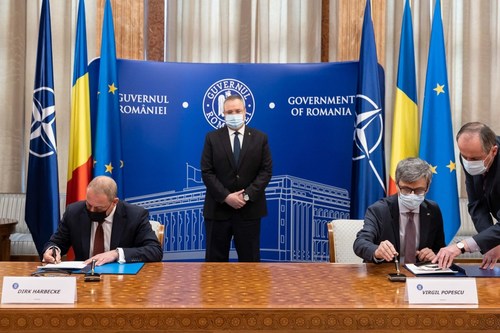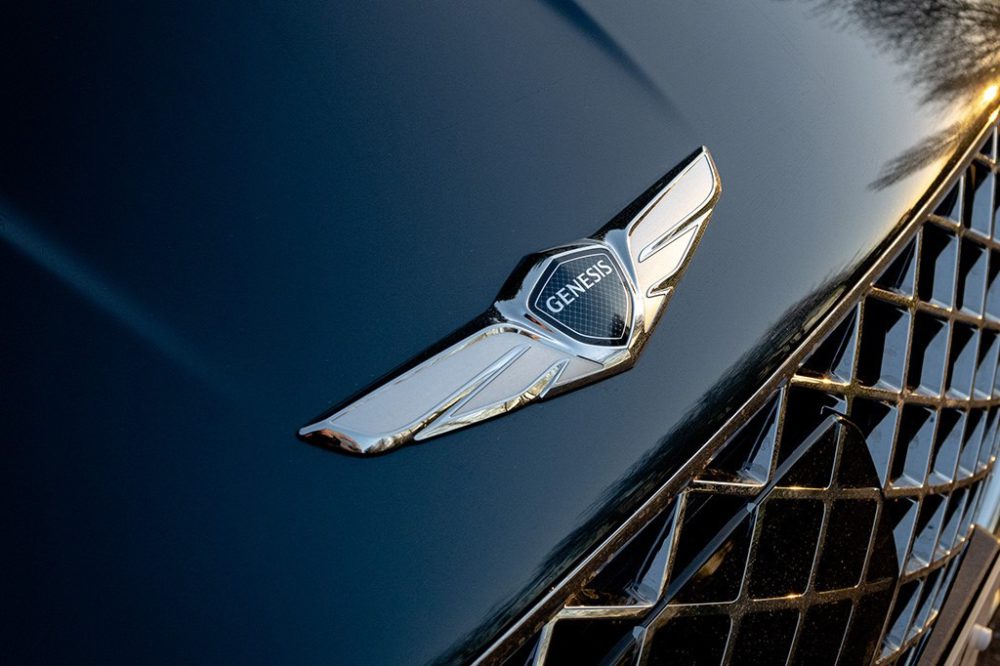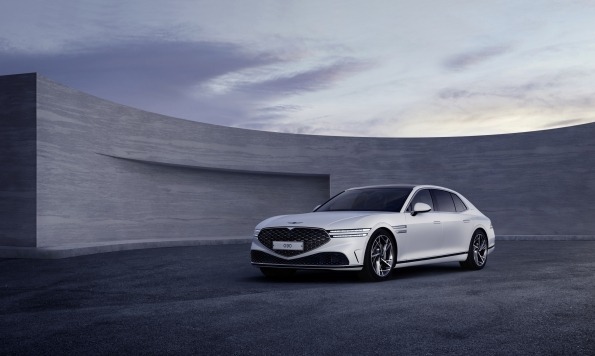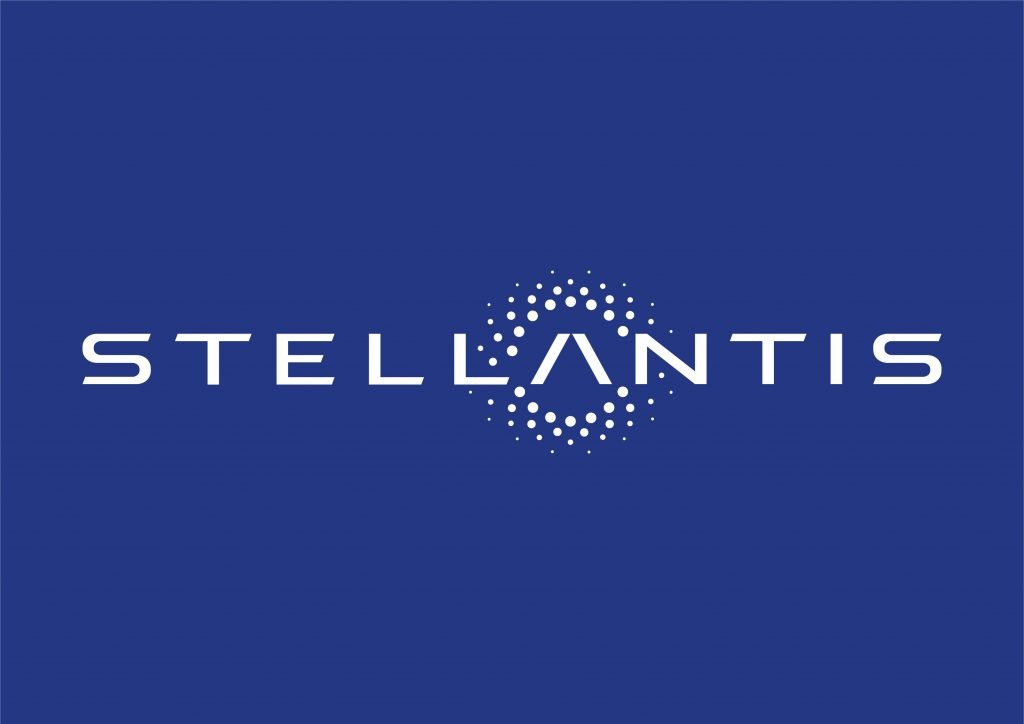Hyundai and Iveco join forces to develop electric and hydrogen-vehicle technology
14 March 2022
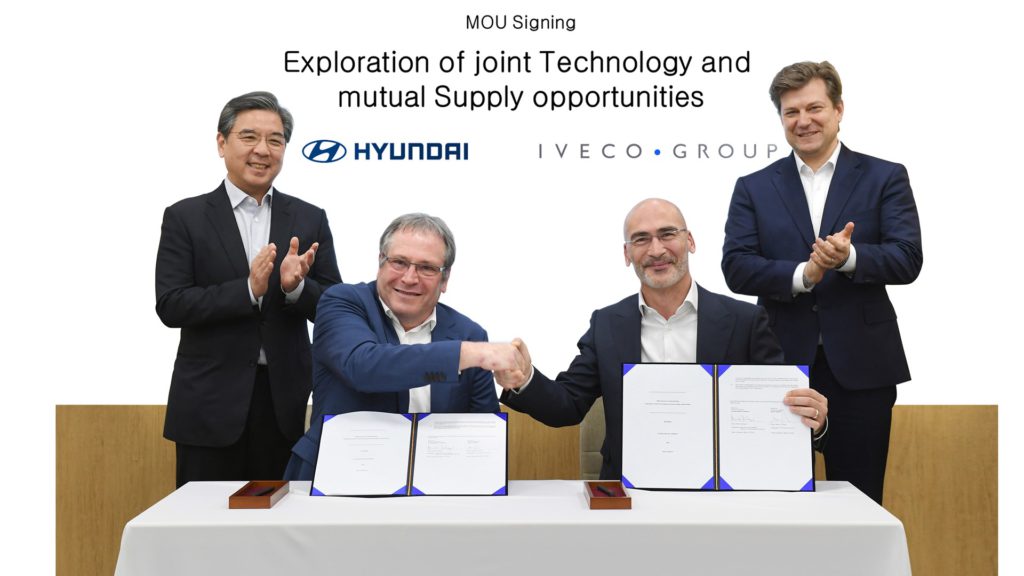
Hyundai and Italian transport vehicle maker Iveco Group have signed a memorandum of understanding (MoU) to look into potential collaborations on shared vehicle technology, joint sourcing, and mutual supply.
Both companies are interested in electric-vehicle (EV) powertrains, hydrogen fuel-cell systems, vehicle automation and connectivity technology for commercial vehicles, with their alliance aimed at developing innovative solutions in these areas. The firms said the MoU is a preliminary step in assessing the possibility for the two groups to cooperate in the fields of technology and platforms, including components and systems.
Independent strategies
‘This agreement is a further step in Iveco Group’s and Hyundai Motor Company’s independent strategies to create leading innovative solutions in today’s fast-changing environment by building an ecosystem of mutually beneficial partnerships,’ the companies stated.
Iveco is known as a global automotive company, and is active in commercial and specialty vehicles, as well as powertrain technology. Its direct competitors include Volkswagen’s Traton, Daimler Truck and Volvo Group. The company employs 34,000 people around the world, has 29 manufacturing plants and 31 research and development centres.
Cleaner mobility
While both Iveco and Hyundai said their collaboration is in line with their independent strategies, both companies share common interests and are eager to increase synergies. Electric powertrains and hydrogen fuel-cell systems hold particular appeal for the two brands.
Last year, Iveco inaugurated a joint-venture facility for electric heavy-duty trucks in Ulm, Germany, with US-based electric truckmaker Nikola. This manufacturing site is dedicated to the Nikola Tre electric heavy-duty lorries. Additionally, a fuel-cell electric vehicle will start production by the end of 2023.
While Hyundai is known for its affordable passenger vehicles, it also ranks among the world’s largest commercial vehicle makers. Its truck and bus business has a long history, with the company selling its first vehicles in 1969. Hyundai has made it clear in the past that it aims to secure its position in the fast-growing market for cleaner commercial vehicles. The company said its Xcient fuel-cell lorry is the world’s first mass-produced, heavy-duty truck powered by hydrogen.

Meanwhile, Iveco is eager to develop zero-emission vehicles, with the company recently renewing its partnership with France-based Forsee Power, which specialises in smart battery systems for electric buses. Both groups have been working together since 2013, hoping to cement their market positions in Europe.
Iveco France is a top player in the electric-bus segment in the country, having a 44% market share there. Its buses can be found in cities across Germany, the Netherlands, and Norway as well. Last month, Iveco also signed framework agreements to supply up to 253 buses between 2022 and 2027 to the city of Prague.
‘Our historic bonds with the Czech Republic, where we operate our major bus manufacturing plant in Vysoké Mýto, make us particularly proud today,’ said Domenico Nucera, president of Iveco’s bus business unit. ‘Thanks to these important agreements, our buses will serve in Prague – as in most European capitals – thousands of passengers every day, in safety and comfort. A further demonstration that Iveco Bus’s diverse and competitive offer can suit the most varied mobility needs of any municipality.’
